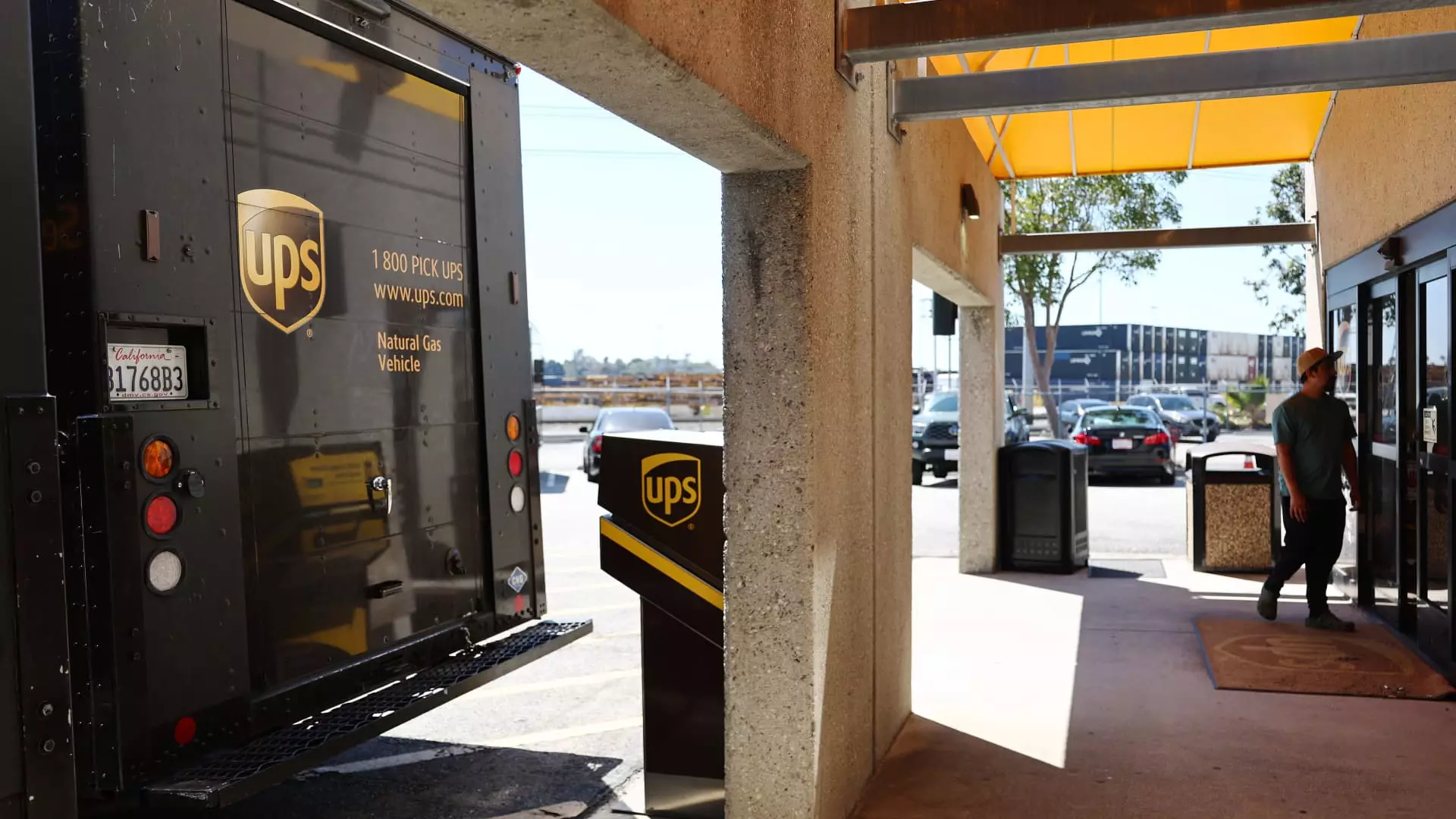The second-quarter earnings report from United Parcel Service (UPS) was met with disappointment as both their profit and revenue fell below expectations. This led to a 7% drop in UPS shares during premarket trading. The company revised its 2024 revenue guidance from a previous forecast of $94.5 billion to approximately $93 billion. Moreover, UPS adjusted their full-year capital expenditures from $4.5 billion to $4 billion. This unexpected downturn in profits raised concerns among investors about the company’s future performance.
Despite the disappointing financial results, UPS announced plans for share repurchases totaling around $500 million in 2024. Additionally, the company revealed its intention to sell its trucking business, Coyote Logistics, to RXO Logistics with the deal expected to close by year-end. Furthermore, UPS made a strategic move to acquire Mexican express delivery company Estafeta, highlighting its commitment to expanding its international presence. These business transactions indicate UPS’ efforts to streamline operations and strengthen its global footprint.
In the quarter ended June 30, UPS reported earnings per share of $1.79 cents, adjusted, falling short of the expected $1.99. Revenue for the same period amounted to $21.8 billion, missing the anticipated $22.18 billion. The company’s net income for the quarter was $1.41 billion, indicating a decline from the previous year. Despite these challenges, UPS CEO Carol Tomé remains optimistic about the company’s future prospects. She highlighted the return to volume growth in the U.S. after nine quarters and expressed confidence in the potential for operating profit growth going forward.
Revenue for UPS dropped to $21.82 billion, down from $22.06 billion in the previous year, primarily driven by decreases in both domestic and international segments. The U.S. operation experienced a 1.9% decline in revenue, attributed to changes in product mix. Similarly, the international segment saw a 1% decrease in revenue due to a drop in average daily volume. However, UPS’ supply chain solutions segment managed to increase its revenue by 2.6% year-over-year, driven by growth in logistics services, especially in healthcare. This diversified performance across segments highlights both challenges and opportunities for UPS in navigating the evolving market conditions.
The weak freight demand and soft pricing in the shipping sector have posed challenges for UPS, reflecting a broader global freight recession. In response to these headwinds, UPS secured a significant air cargo contract with the United States Postal Service, replacing rival FedEx. This strategic move not only strengthens UPS’ position in the market but also underscores the company’s ability to capitalize on new opportunities. The dynamics of the shipping industry are constantly evolving, and UPS’ strategic initiatives demonstrate its resilience and adaptability in the face of industry challenges.
UPS’ second-quarter earnings report reflects a mixed performance with lower-than-expected profits and revenue. Despite these challenges, the company’s strategic moves to streamline operations, expand internationally, and secure key contracts demonstrate a proactive approach to driving future growth. As UPS navigates a rapidly changing industry landscape, its ability to innovate and adapt will be crucial in sustaining long-term success.

